The history of the World Cup has been littered with players who have made a massive impact for their teams during a single tournament.
Being a difference-maker at the World Cup generally cements a player’s legacy, etching their names into football folklore for eternity.
With that in mind, we look back through previous World Cups to identify the players we believe produced the best performances of all-time.
1. Diego Maradona – 1986
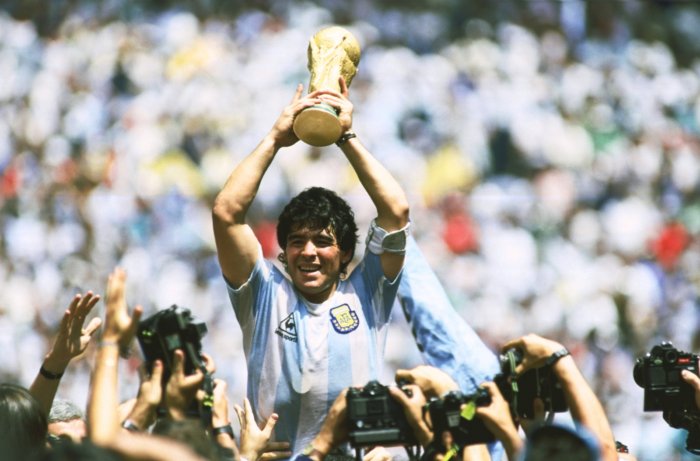
Source: thesefootballtimes.co
The Argentinian maestro was recently chosen by Betway as the greatest player of all-time (G.O.A.T), although they did use real goats to determine the result.
However, the animals clearly know their stuff where football is concerned as Maradona’s exploits for club and country are undoubtedly legendary.
He was the undisputed star of the show at the 1986 World Cup in Mexico, netting five goals and five assists to help Argentina win the tournament for the second time.
2. Just Fontaine – 1958
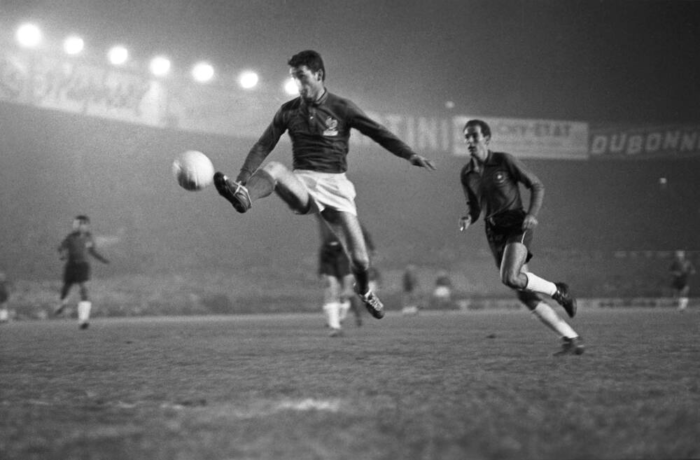
Source: afrobookies.com
Football fans are often blinkered by the achievements of players in the modern era, but that mindset does a disserve to what happened in the past.
Fontaine cemented his status as a World Cup great in 1958, scoring a staggering 13 goals in six appearances for France.
Remarkably, his team failed to lift the prestigious trophy in Sweden as a Pele-inspired Brazil swept them aside in the semi-finals.
3. Pele – 1958
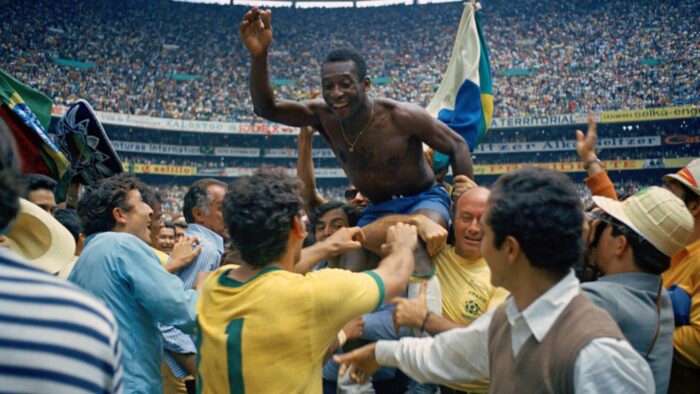
Source: latimes.com
Pele announced his arrival on the international stage in stunning fashion during that tournament, netting six goals in four games as Brazil clinched the title.
The then-17-year-old showed maturity beyond his tender age, bamboozling opposition defenders with his staggering array of skills.
His hat-trick against France highlighted his talent to perfection, and it was no surprise when he went on to establish himself as one of the greatest players of all-time.
4. Garrincha – 1962
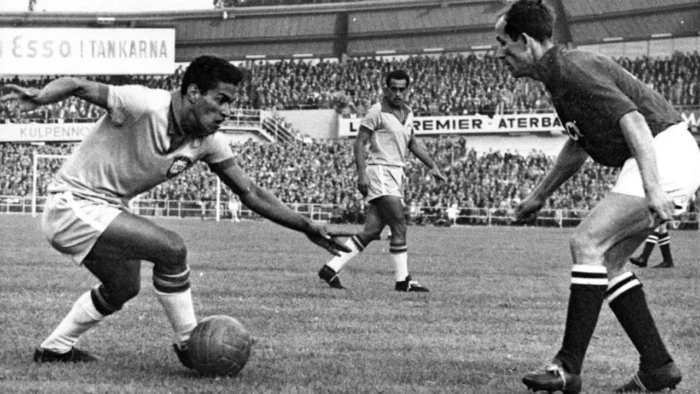
Source: mubi.com
An injury to Pele in Brazil’s second game at the 1962 World Cup in Chile threatened to derail Brazil’s hopes of retaining the title.
Right-winger Garrincha stepped up to the plate, producing a series of world-class performances to help Brazil become just the second team to win back-to-back World Cups.
Garrincha became the first player to win the Golden Ball, Golden Boot and the World Cup in the same tournament, highlighting how influential he was.
5. Franz Beckenbauer – 1974
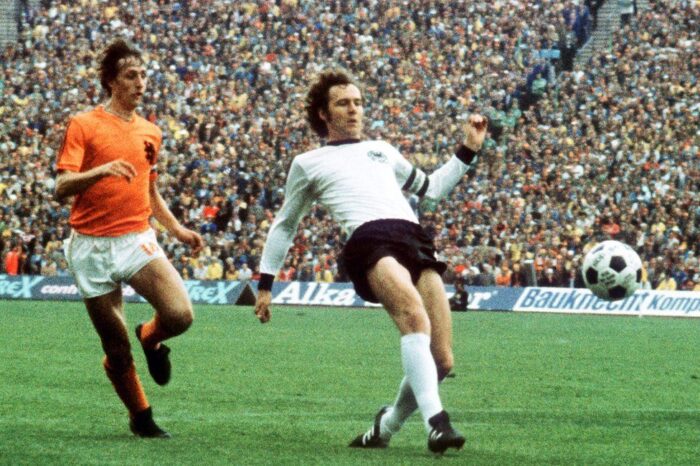
Source: bbc.com
Beckenbauer went into the 1974 World Cup with a point to prove after injury prevented him from producing his best form for West Germany four years earlier.
He was imperious throughout the tournament, but faced his biggest test in the final as the Germans met a star-studded Netherlands team.
Beckenbauer was the star of the show, keeping Dutch maestro Johan Cruyff quiet as Germany came from a goal down to secure a 2-1 victory.
6. Ronaldo – 2002
Long before Cristiano Ronaldo arrived on the scene, there was another Ronaldo who laid claim to being the greatest player in the world.
After suffering a convulsive fit before the 1998 final which Brazil subsequently lost, Ronaldo went into the 2002 tournament eager to make amends.
He finished as the tournament’s top scorer – a tally that included a brace in the final against Germany as Brazil were crowned world champions for the fifth time.
7. Zinedine Zidane – 1998
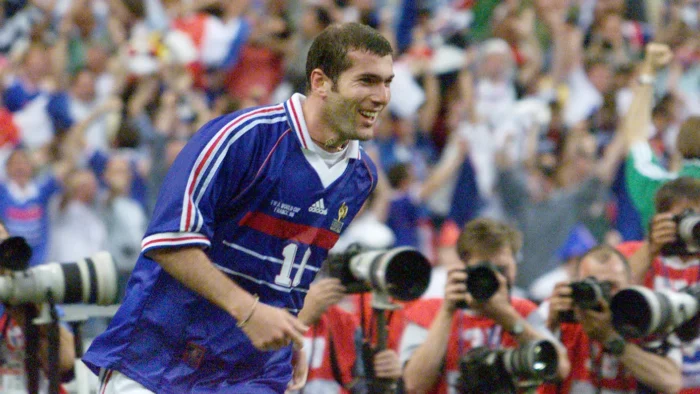
Source: fifa.com
Zidane had a roller-coaster ride for France at the 1998 World Cup, but it was a journey that ultimately ended with him becoming a national hero.
He set up a couple of goals in the group stage but missed the round of 16 victory over Paraguay after being sent off for stamping on Saudi Arabia’s Fuad Anwar.
Zidane returned to the side and helped them reach the final, where he scored twice in a 3-0 victory over Brazil to secure France’s first World Cup success.
8. Xavi – 2010
The Spain squad was packed with stars at the 2010 World Cup, but none shone brighter than Barcelona midfielder Xavi during the tournament.
He provided 599 accurate passes with a 91% success rate, averaged approximately 11.5 kilometres per game and generally ran the show for Spain.
Xavi kept his cool in a bad-tempered final against Netherlands, helping Spain get their hands on the World Cup for the first time.
9. Andrea Pirlo – 2006
Four years before Xavi was producing midfield masterclasses for Spain, Pirlo was gliding around the middle of the park as Italy emerged victorious in Germany.
Pirlo played a pivotal role in Italy’s run to the final, setting up several goals for his teammates to keep them on course for glory.
He was outstanding in the final against France, netting Italy’s equaliser before scoring the first penalty in the shoot-out which they eventually won.
10. James Rodriguez – 2014
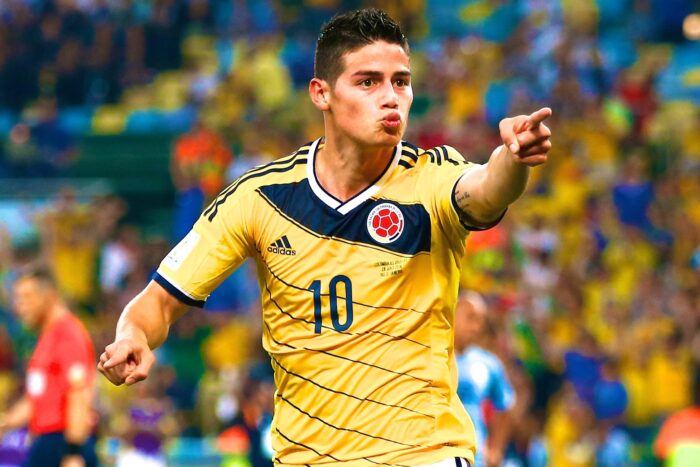
Source: bleacherreport.com
Most of the players we have mentioned up to this point were part of World Cup winning teams, but that was not the case for Rodriguez.
The Colombian playmaker bagged six goals and two assists in five matches, but he was left heartbroken as his team were eliminated by Brazil in the quarter-finals.
He won the Golden Boot as the tournament’s top goalscorer and ended up securing a big money move to Real Madrid on the back of his efforts in Brazil.
11. Hristo Stoichkov – 1994
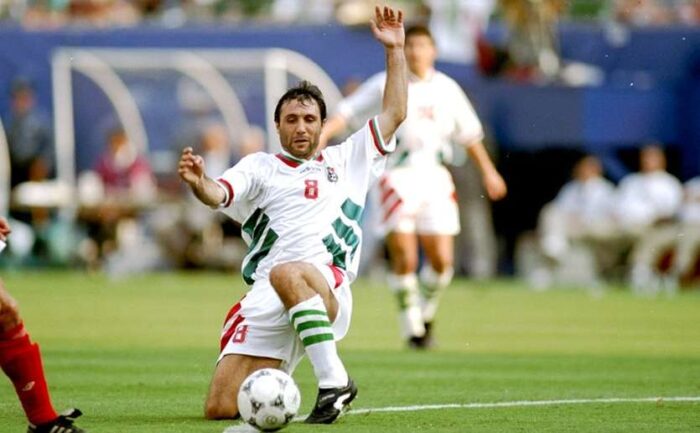
Source: best100football.wordpress.com
Bulgaria were unquestionably the surprise package at the 1994 World Cup in the United States, reaching the semi-finals of the tournament.
Stoichkov was their talisman, netting six goals to finish as the joint top scorer alongside Russian forward Oleg Salenko.
He was on the scoresheet as Bulgaria beat reigning champions Germany 2-1 in the quarter-finals – one of the biggest shocks in World Cup history.
12. Paolo Rossi – 1982
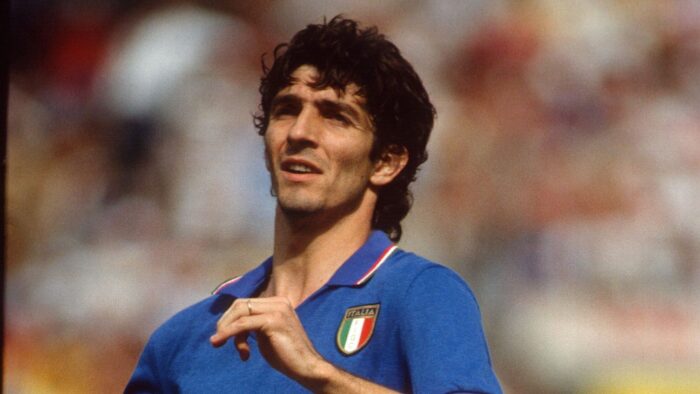
Source: espn.com
Rossi was hammered by the Italian media for his poor performances during the group stage in 1982, but ended up winning them round in the knockout phase.
He scored a hat-trick to defeat Brazil 3–2 to qualify for the semi-finals, and added another two to his tally in the last four match against Poland.
Rossi scored the first of Italy’s three goals in the final against West Germany and ended the tournament with the Golden Boot and Golden Ball awards in his possession.
